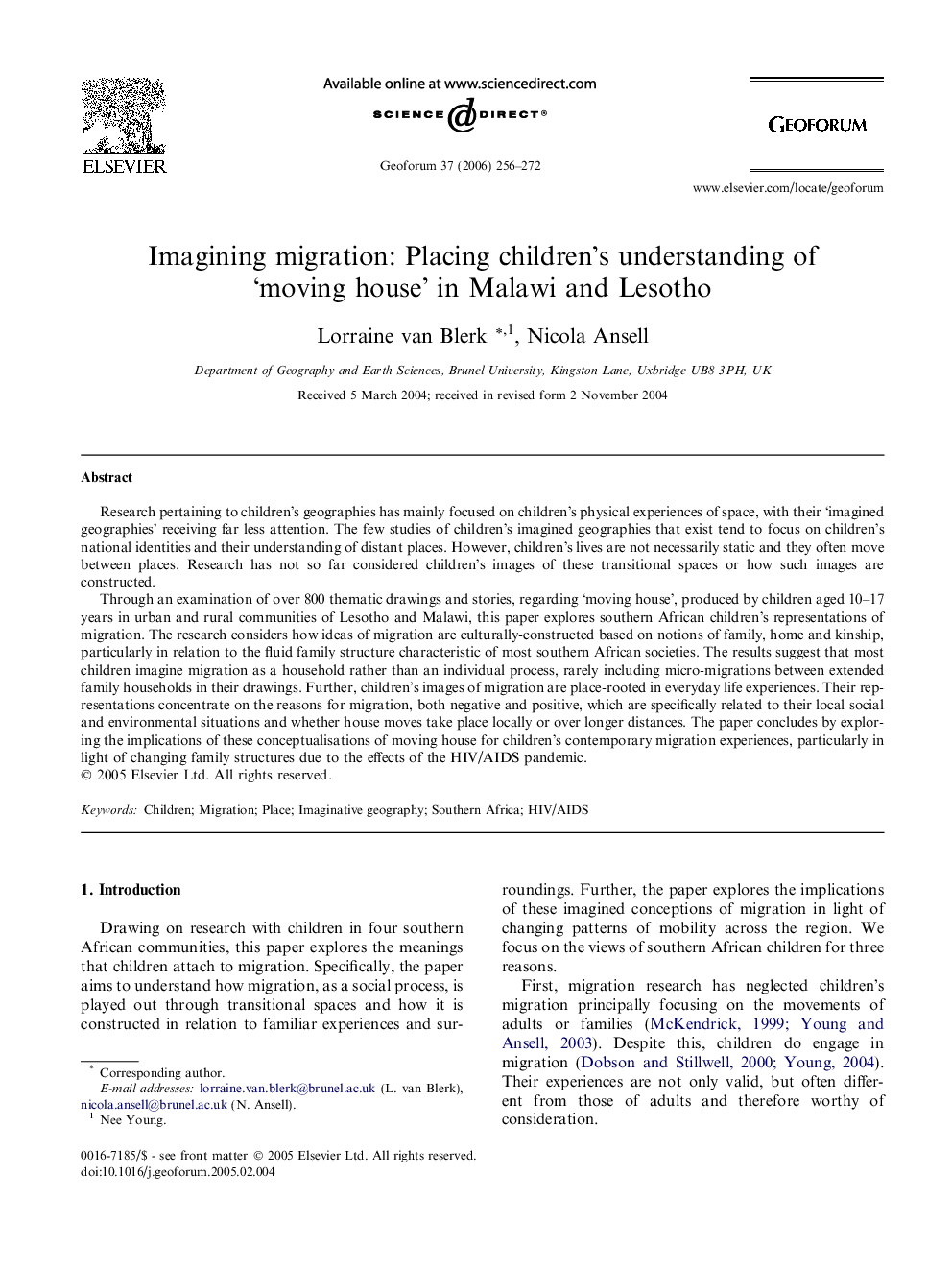| Article ID | Journal | Published Year | Pages | File Type |
|---|---|---|---|---|
| 5075270 | Geoforum | 2006 | 17 Pages |
Abstract
Through an examination of over 800 thematic drawings and stories, regarding 'moving house', produced by children aged 10-17 years in urban and rural communities of Lesotho and Malawi, this paper explores southern African children's representations of migration. The research considers how ideas of migration are culturally-constructed based on notions of family, home and kinship, particularly in relation to the fluid family structure characteristic of most southern African societies. The results suggest that most children imagine migration as a household rather than an individual process, rarely including micro-migrations between extended family households in their drawings. Further, children's images of migration are place-rooted in everyday life experiences. Their representations concentrate on the reasons for migration, both negative and positive, which are specifically related to their local social and environmental situations and whether house moves take place locally or over longer distances. The paper concludes by exploring the implications of these conceptualisations of moving house for children's contemporary migration experiences, particularly in light of changing family structures due to the effects of the HIV/AIDS pandemic.
Related Topics
Social Sciences and Humanities
Economics, Econometrics and Finance
Economics and Econometrics
Authors
Lorraine van Blerk, Nicola Ansell,
